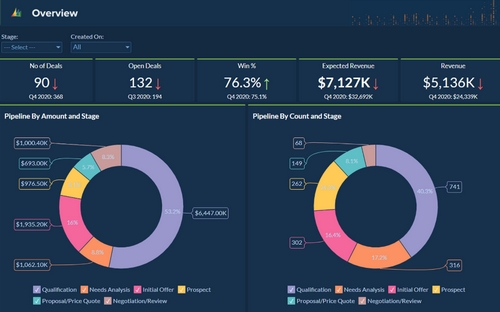Microsoft Dynamics CRM is a powerful customer relationship management (CRM) tool that helps businesses manage their customer interactions and streamline their processes. Developed by Microsoft Corporation, Dynamics CRM has become a popular choice for organizations of all sizes and industries. In this article, we will explore the key features, benefits, and implementation of Microsoft Dynamics CRM.
Key Features of Microsoft Dynamics CRM
Sales Management
One of the key features of Dynamics CRM is its sales management capabilities. With Dynamics CRM, businesses can manage their sales pipeline, track leads, and manage accounts and contacts. The solution offers a range of sales management tools, including lead management, opportunity management, and account and contact management.
Marketing Automation
Dynamics CRM also offers robust marketing automation capabilities. Businesses can create and manage email campaigns, social media marketing, and other digital marketing activities from a single platform. Dynamics CRM allows businesses to track customer behavior and preferences, making it easier to create targeted marketing campaigns.
Customer Service
Dynamics CRM provides a range of customer service tools, including case management, service scheduling, and knowledge management. With these tools, businesses can improve their customer service capabilities and enhance customer satisfaction.
Benefits of Using Microsoft Dynamics CRM
Increased Productivity
By automating processes and providing a unified platform, Dynamics CRM can help businesses increase their productivity. Teams can collaborate more effectively, reducing time spent on administrative tasks and increasing the time spent on more strategic activities.
Improved Customer Experience
Dynamics CRM helps businesses provide better customer experiences by offering a 360-degree view of the customer. By tracking customer behavior and preferences, businesses can personalize their interactions and tailor their marketing and sales efforts.
Real-Time Insights and Analytics
Dynamics CRM provides real-time insights and analytics that can help businesses make informed decisions. With customizable dashboards and reports, businesses can monitor their performance, track trends, and identify areas for improvement.
Enhanced Collaboration and Communication
With Dynamics CRM, teams can collaborate more effectively and share information more easily. The solution provides a centralized platform for communication and collaboration, reducing the risk of miscommunication and errors.
Microsoft Dynamics CRM Implementation
To implement Dynamics CRM successfully, businesses need to follow a few key steps:
Define Goals and Objectives
Businesses should define their goals and objectives for implementing Dynamics CRM. This will help them align their efforts and resources, and ensure that they are focusing on the right areas.
Identify Key Stakeholders
Identifying key stakeholders is crucial to the success of any CRM implementation. Businesses should involve all relevant stakeholders in the planning and implementation process to ensure buy-in and alignment.
Develop a Project Plan
A project plan should be developed that outlines the key milestones, timelines, and resources required for the implementation. Businesses should ensure that the plan is realistic and achievable.
Customize the Solution
Dynamics CRM is highly customizable, and businesses should tailor the solution to their specific needs. This may involve creating custom workflows, fields, or forms.
Train Users
Training is crucial to the success of any CRM implementation. Businesses should provide adequate training to all users to ensure that they are comfortable using the solution and that they understand its capabilities.
Conclusion
Microsoft Dynamics CRM is a powerful solution that can help businesses manage their customer relationships more effectively. By offering a range of sales, marketing, and customer service tools, Dynamics CRM can help businesses increase their productivity, improve customer experiences, and make better-informed decisions. To implement Dynamics CRM successfully, businesses should define their goals and objectives, involve key stakeholders, develop a project plan, customize the solution, and provide adequate training to users. As businesses continue to rely on technology to drive growth, Dynamics CRM will continue






0 comments:
Posting Komentar